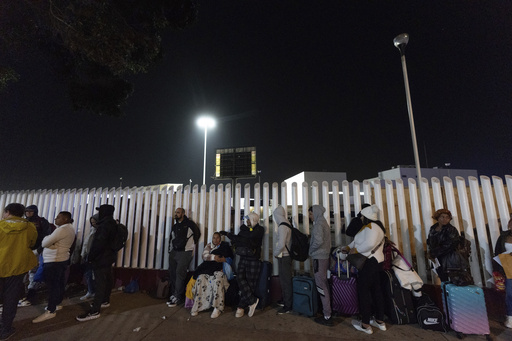
Cuba is currently facing one of its most challenging situations since the 1959 revolution, with significant shortages prompting a wave of emigration, sporadic protests, and strict government responses. In Haiti, gangs have gained control of the streets in Port-au-Prince, even shooting at incoming aircraft and causing delays in elections intended to fill the void left by the assassination of President Jovenel Moïse. Meanwhile, the political climate in Nicaragua remains tense, as President Daniel Ortega has imprisoned protesters, opposition figures, and religious leaders amidst widespread shortages and high inflation rates. This scenario has contributed to nearly 8 million Venezuelans migrating from the oil-rich nation of 28 million.
In response to these escalating crises, President Joe Biden has utilized humanitarian parole to welcome half a million individuals from Cuba, Haiti, Nicaragua, and Venezuela. This legal provision, in place for seventy years regardless of the administration’s political affiliation, assists those unable to pursue standard immigration channels due to time constraints or poor diplomatic relations with the U.S.
However, with the anticipated election of Donald Trump, the future of this humanitarian parole program appears uncertain. Trump, who has built his campaign around anti-immigration sentiment, has indicated plans to eliminate what he refers to as the “outrageous abuse of parole.” He has made it clear that he intends to oust numerous immigrants who arrived in the U.S. under the programs established during Biden’s administration.
A large number of individuals, who currently have precarious legal status established under Biden’s initiatives, are now anxious that their protections may soon be revoked. These protections encompass Biden’s humanitarian parole efforts, his backing for Deferred Action for Childhood Arrivals (DACA), support for individuals entering through the border appointment app called CBP One, and expanded use of Temporary Protected Status to afford individuals protection from deportation.
The purpose of humanitarian parole is to allow the president to permit entry for individuals based on urgent humanitarian concerns or considerable public benefit. Since its introduction in 1952, it has been invoked 126 times by every sitting president except Trump, as noted by immigration advocacy groups.
The potential for termination of parole under a Trump administration raises fears among many immigrants. Manuel Castaño, a 39-year-old human rights advocate from Nicaragua, whose parole is set to expire in March 2025, expressed anxiety about his uncertain future after migrating to Miami in early 2023 with his family. Castaño, who faced threats in his home country, emphasizes that returning to Nicaragua is not a viable option for him or his family.
Under Biden, over a million individuals have been granted parole, including many Afghans and Ukrainians. Biden initiated a parole program for Venezuelans in October 2022 and subsequently expanded it to encompass Cubans, Haitians, and Nicaraguans, countries that generally resist accepting deportees from the U.S. The CHNV program allows for the acceptance of up to 30,000 individuals monthly from these four nations, providing work authorization for a two-year duration and facilitating an online application process. This initiative aims to deter illegal border crossings.
According to official reports, by the end of October, the U.S. had granted parole to more than 110,240 Cubans, 211,010 Haitians, 93,070 Nicaraguans, and 117,310 Venezuelans. The upcoming administration’s team is expected to include strong proponents of stricter immigration policies, such as former acting head of U.S. Immigration and Customs Enforcement Tom Homan, immigration hard-liner Stephen Miller, and South Dakota Governor Kristi Noem as the head of the Department of Homeland Security.
Kyle Varner, a doctor and real estate investor from Spokane, Washington, has invested $150,000 to facilitate the arrival of 47 Venezuelans he sponsored over the past two years. He is now scrambling to fund legal counsel to secure the status of these individuals in light of Trump’s impending administration.
Legal challenges are likely if there is mass termination of parole statuses; however, one legal expert suggested that the administration may choose to suspend new entries and wait for current beneficiaries’ statuses to expire. There is also the potential for the administration to find streamlined methods for deporting those granted parole due to accessible official records.
Venezuelan Ireswa Lopez, who has work authorization until March 2025, is already contemplating her exit strategy. After escaping the hardships of her homeland, where she struggled with severe food shortages and contaminated water, Lopez managed to secure a position at a daycare center in Atlanta. Despite this, she plans to leave the U.S., stating, “Staying illegally is not in my plans.”
